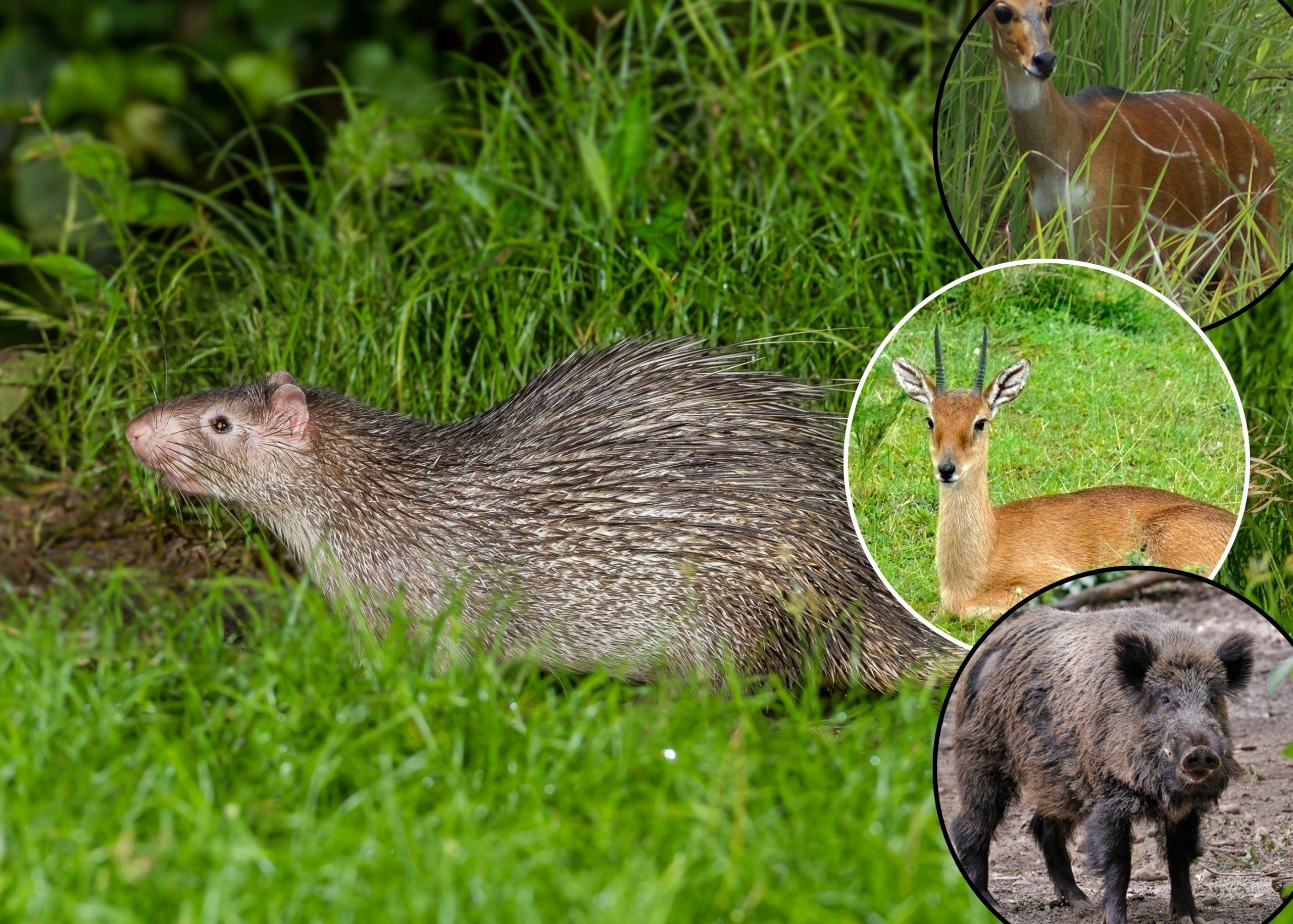News in Brief:
– The demand for game meat in Nigeria has surged, driven by cultural preferences and perceived nutritional benefits.
– However, declining supply due to overhunting and habitat destruction has led to increased prices and concerns about sustainability.
The demand for game meat, also known as bush meat, in Nigeria has surged in recent years, driven by cultural preferences, taste, and perceived nutritional benefits.
Effectively, the amount of game meat consumed in Nigeria is roughly 122,000 to 163,000 tons yearly.
This is despite reported links between bush meat consumption and diseases like Ebola virus, even HIV, though this claim is contested by experts. For example, the Centre for Disease Control and Prevention stated that Ebola is not generally spread through food, but the hunting, butchering and processing brings people into contact with blood and other fluids.
According to Robert Nasi, Deputy DG of the Centre for International Forestry Research, thousands of Africans count on bush meat and wild fish for up to eighty per cent of their protein. He added that calls to give up the exchange due to the fact of links to Ebola virus outbreaks should not be enforced.
Diversity of game meat and popular locations of sale
Popularly consumed game meat in Nigeria include species such as antelope, deer, porcupine, cane rat (or grasscutter), and wild boar. They are mostly consumed in states like Rivers, Cross River, Benue, Edo, Lagos, Taraba and a few others, where they are traditional dietary staple.

The Oban region of Cross River State witnesses sales of about 21 species of wild animals. This forms an indispensable income source for both rural and urban households. It is also an important livelihood activity for hunters, wholesalers and restaurant owners.
Oluwo market in Epe, Lagos, for example, boasts a cornucopia of game meat options. These include crocodile, grass cutter, antelope, bush pig, and deer. They are available both seasoned and dried.
Also, Ogida market in Benin city, is home to a thriving trade of bush meat in that area.
Declining supply
However, overhunting and habitat destruction are contributing to depleted populations of many game species, leading to a significant decline in supply. Thus, prices are trending northward and making this product less accessible to many consumers.
A bush meat trader in Badagry area of Lagos state, Adolphus Eze, who also runs a roadside ‘beer parlour’ confirmed this happening to this publication. He revealed that patronage of especially grasscutter meat is high, even though it is much more expensive than chicken, for example.
“I have been in this business for quite some time, and I can tell you that patronage of bush meat is very popular and also a good source of income,” he revealed. However he noted that there are challenges involved like sourcing because most of the meat comes from local hunters in surrounding communities.
Eze stated that he sells a carcass of dried grasscutter from upwards of ₦10,000, which is more than the average of ₦5000 that he prices chicken meat.
He adds that his customers are usually holidaymakers looking to try some exotic delicacies, including snake and alligator meat.
Consequently, game meat hunters and vendors in regions with high demand often express frustration with the challenges of meeting the growing demand. Kenneth Ubong, a bush meat vendor in Cross River state, noted that the forests are being cleared and overhunting has depleted the local wildlife population.
Consumer perspectives
One of Eze’s customers affirmed his preference for bush meat due to its gamey taste, but decried the high price attached. He also disclosed that sometimes the meat is quickly sold out, especially on weekends. This he observes drives up the prices of the scarce few remaining.
“I love the taste of bushmeat. It’s a traditional part of our culture, but it’s becoming increasingly difficult to find and afford,” said Amina Ibrahim, a resident of Lagos State.
Despite the challenges, game meat remains a popular choice for many Nigerians. This is because some consumers believe that it is healthier and more flavourful than domesticated meat.
However, the unsustainable consumption of game meat raises concerns about the long-term viability of wildlife populations. It also queries the ecological balance of Nigeria’s ecosystems. Unregulated hunting can and does have detrimental effects on ecosystems and biodiversity.
A food nutritionist, Bukola Deinde, who runs a restaurant in the Iyana Iba axis of Lagos state, offers her take on the issue. According to her, in comparison with domesticated meat, game meat is generally lower in fat and cholesterol. This makes it a healthier option for many consumers.
Additionally, Mrs. Bukola who serves special game peppersoup in her outfit, noted that the meat is often a good source of lean protein, essential vitamins, and minerals.



